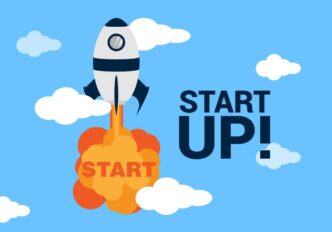With IPOs still on pause and startup valuations cooling from their 2021 highs, the appetite for startup acquisitions is heating up in 2025. New data from Crunchbase reveals a surge in venture-backed startup M&A activity during the first quarter, signaling a clear shift in how deals are getting done this year.
It’s not just traditional buyers making moves either. More startups are acquiring peers, and private equity firms are stepping up their game, reshaping the M&A landscape. Let’s dive into the latest numbers and trends shaping the market.
A Strong Start for Startup M&A in 2025
Q1 2025 marked the biggest quarter for startup M&A by dollar volume since 2021, according to Crunchbase. Venture-backed startups generated $71 billion in reported exit value globally. Deal activity also saw a sharp jump, with 550 acquisitions — a 26% increase year-over-year, though just shy of Q4 2024’s 563 deals.
One standout transaction was Google’s planned acquisition of cybersecurity unicorn Wiz for a whopping $32 billion. If it closes, it will be the largest private company acquisition on record.
In total, 12 startup acquisitions in Q1 topped the $1 billion mark. Besides Wiz, major moves included SoftBank’s purchase of Ampere Computing, Clearlake Capital’s acquisition of Modernizing Medicine, ServiceNow buying Moveworks, and CoreWeave snapping up Weights & Biases.
Notably, AI startups led the charge. There were 81 M&A deals involving AI companies in Q1 alone, up nearly 33% compared to both Q1 and Q4 2024.
Private Equity Firms Ramp Up Acquisitions
Private equity firms have been especially aggressive buyers. In 2024, PE firms disclosed spending more than $56 billion acquiring private venture-backed companies. Since only about 20% of deals report financial terms, the true number is likely much higher.
That momentum has carried into 2025. So far this year, PE firms have announced 22 acquisitions of seed- or venture-funded startups. The disclosed deals alone added up to $8.3 billion, led by Clearlake Capital’s $5.3 billion majority stake in ModMed, Bain Capital’s $2.6 billion purchase of HealthEdge, and CBRE’s $400 million acquisition of Industrious.
Startups Are Becoming Active Buyers, Too
While strategic buyers and PE firms dominate the headlines, startups themselves are becoming increasingly active buyers. Over the past year, at least 423 U.S. venture- or seed-backed companies were acquired by other venture-funded startups, Crunchbase reports.
Though many deals remain undisclosed, a few major ones caught attention. Stripe’s $1.1 billion acquisition of Bridge was the largest startup-to-startup deal recently. Other notable transactions included AlphaSense buying Tegus for $930 million and LetsGetChecked acquiring Truepill for $525 million.
What’s Next for Startup M&A?
At the start of 2025, optimism was high that M&A would rebound, helped by expectations of a business-friendly White House under the Trump administration. However, new volatility caused by shifting tariff policies has dampened some of that enthusiasm.
According to Ofer Schreiber, senior partner at YL Ventures, large strategic buyers are showing more caution as economic instability and valuation swings make acquisitions riskier. In short, while startup M&A got off to a hot start this year, whether the trend accelerates or slows will likely depend on broader market conditions.













